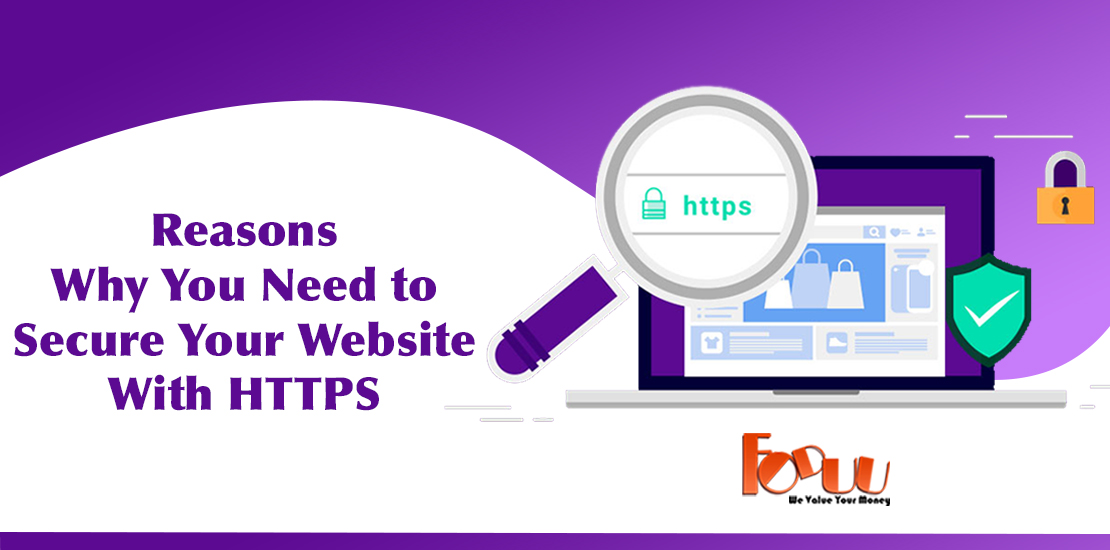The phrase “security first” goes with your websites as well. Just as you protect your houses from thieves, you need to secure your websites from hackers. Google first started encouraging sites to go to HTTPS in May 2010.
Then on August 6, 2014, Google announced that they would be showing a preference for HTTPS sites in search results.
Until recently, most website owners, unless they were performing eCommerce transactions or gathering confidential information such as medical or banking data, did not have to worry about special steps to protect their web pages. But all that 's changing now.
Securing websites with HTTPS is now officially recommended by Google, which means that not only will this be essential for organisations that want their websites to perform well in search, but more and more visitors will come to expect it.
In short, for only those types of websites to worry about, website protection is no longer anything-it is a best practise for all companies and organisations who want to improve their search engine efficiency, build visitor reputation, and maintain a professional web presence.
- 85 percent of consumers would abandon a purchase if data was sent over an unsecured connection
- 82 percent of people wouldn’t browse an unsecured website
- 43 percent of cyber attacks target small business
You protect yourself and your consumers by making your website HTTPS instead of HTTP.
What is SSL and what is HTTPS? What is the difference between SSL and HTTPS?
You may have heard "SSL" or "SSL Certificate" words that are used with HTTPS interchangeably. These are, for the most part, similar. An SSL certificate is a software you actually purchase and instal on your server, and the consequence of getting that certificate on your server is HTTPS.
Here are 5 reasons why your website should be protected:
- To infect your site visitors with malware, hackers will use your website.
- You can get an SEO penalty, which makes it harder to find new customers for your company.
- You will get blacklisted, and it loses almost 95 percent of its organic traffic when a website is blacklisted, which can quickly impact sales.
- Clean-up of websites is more costly than security.
- Hackers will steal your data and customer information from you.
- A big blow to your online business reputation
ADVANTAGES OF HTTPS:
Improved search engine rankings
HTTPS is more than 40 percent of the sites on Google's first list, which is not a surprise because Google has stated that they favour HTTPS sites.
Google needs to ensure that users get the greatest user experience, so they understandably don't want to send searchers to unreliable websites. Their rating algorithm favors HTTPS sites because of that. If your site is not stable, it may be overshadowed by similar sites.
Browser Labels Modified
Google is also updating their marking for HTTP sites in Chrome's URL bar as part of their drive for a safer network.
Currently, HTTP sites are marked with a grey information symbol which tells the user that if they click on it, the site is not safe. Google will change that sometime this year to include a "Not Safe" label that is shown on a simple site, rather than after a user clicks on the information icon. Google will eventually mark http sites with a red triangle written in red with a "Not Safe" label.
Although this new label only means that the site is not HTTPS, it is not completely understood by users, and many would probably feel awkward having the label on a site they are surfing.
Enhanced conversions
Although users may not have a full technical understanding of safe connexions, they do understand that if they provide personal information, they want a site to be HTTPS.
We are also seeing a gap between HTTP and HTTPS sites in conversion rates. After Google launches its latest HTTP marking, however, we are likely to see an even greater gap in conversion rates between the two. Something as simple as entering a name , email, and phone number into a basic lead generation form may cause anxiety and concern for users when users see those red labels.
Increased Consumer Trust
With all of the hype about HTTPS going around, while visiting a website, more users are explicitly searching for a safe link.
A safe link gives your customers peace of mind that it is possible to trust your website and that their information is safe.
Steps to turn from HTTP to HTTPS
- Find an SSL certificate
- Install the SSL certificate
- Update the domain to point to HTTPS
- Redirect all HTTP pages to HTTPS
- Re-verify ownership in Google Search Console
- Update the sitemap
- Update the robots.txt
- Update your settings in Google Analytics
- Test
Make your website investment worth it. Switch to HTTPS. Foduu can handle the process for you! We are a trusted company in the industry, and our employees are experts in the process!










